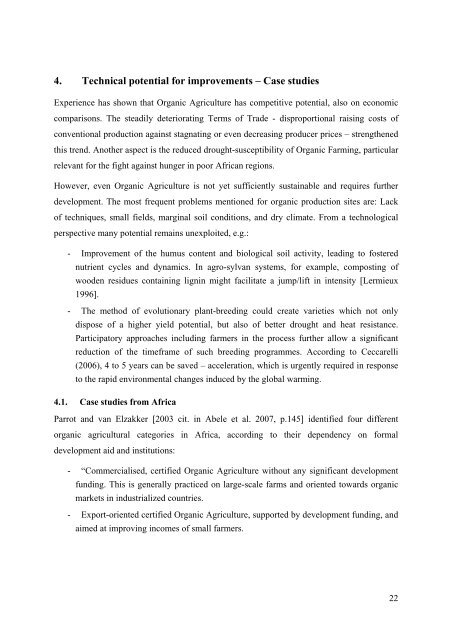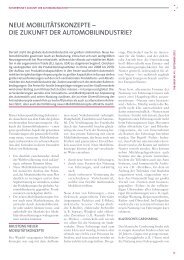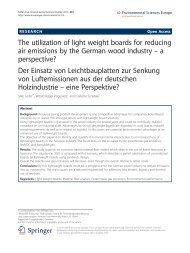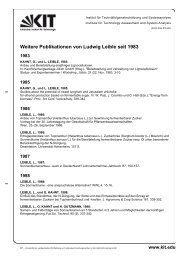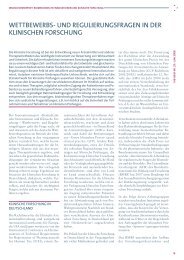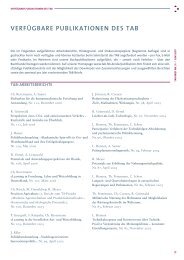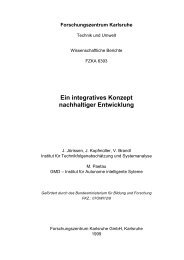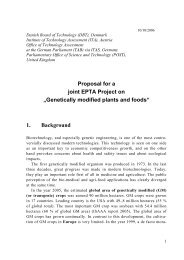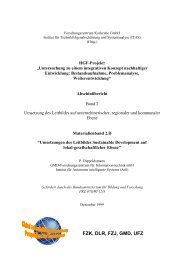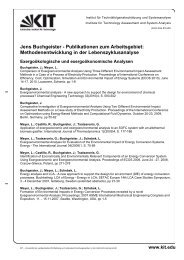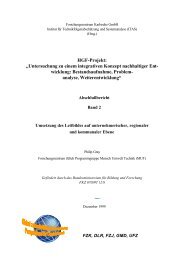Annex 4: Case study âOrganic Farmingâ - ITAS
Annex 4: Case study âOrganic Farmingâ - ITAS
Annex 4: Case study âOrganic Farmingâ - ITAS
You also want an ePaper? Increase the reach of your titles
YUMPU automatically turns print PDFs into web optimized ePapers that Google loves.
4. Technical potential for improvements – <strong>Case</strong> studies<br />
Experience has shown that Organic Agriculture has competitive potential, also on economic<br />
comparisons. The steadily deteriorating Terms of Trade - disproportional raising costs of<br />
conventional production against stagnating or even decreasing producer prices – strengthened<br />
this trend. Another aspect is the reduced drought-susceptibility of Organic Farming, particular<br />
relevant for the fight against hunger in poor African regions.<br />
However, even Organic Agriculture is not yet sufficiently sustainable and requires further<br />
development. The most frequent problems mentioned for organic production sites are: Lack<br />
of techniques, small fields, marginal soil conditions, and dry climate. From a technological<br />
perspective many potential remains unexploited, e.g.:<br />
- Improvement of the humus content and biological soil activity, leading to fostered<br />
nutrient cycles and dynamics. In agro-sylvan systems, for example, composting of<br />
wooden residues containing lignin might facilitate a jump/lift in intensity [Lermieux<br />
1996].<br />
- The method of evolutionary plant-breeding could create varieties which not only<br />
dispose of a higher yield potential, but also of better drought and heat resistance.<br />
Participatory approaches including farmers in the process further allow a significant<br />
reduction of the timeframe of such breeding programmes. According to Ceccarelli<br />
(2006), 4 to 5 years can be saved – acceleration, which is urgently required in response<br />
to the rapid environmental changes induced by the global warming.<br />
4.1. <strong>Case</strong> studies from Africa<br />
Parrot and van Elzakker [2003 cit. in Abele et al. 2007, p.145] identified four different<br />
organic agricultural categories in Africa, according to their dependency on formal<br />
development aid and institutions:<br />
- “Commercialised, certified Organic Agriculture without any significant development<br />
funding. This is generally practiced on large-scale farms and oriented towards organic<br />
markets in industrialized countries.<br />
- Export-oriented certified Organic Agriculture, supported by development funding, and<br />
aimed at improving incomes of small farmers.<br />
22


